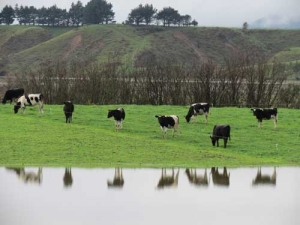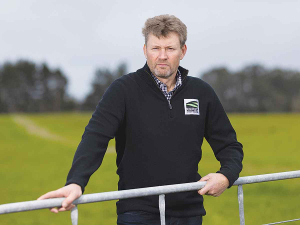While the latest floods in the lower North Island are not as widespread and therefore not in the same league as those of 2004, they are nonetheless distressing and devastating to many farming families.
The damage seems confined to fewer farms, but it seems some of these have been hit even worse than some in 2004.
This latest event occurred before calving and so the interruption to milking is limited except for those who do winter milk. But the bad news is pastures inundated with silt will take longer to clear and re-grass.
It will take a lot of time to repair fences, races and sheds and to buy in more supplementary feed for cows effectively stranded on the high ground of many farms. This is extra work farmers don’t need as they head into the busiest time of the year.
For sheep and beef farmers, the damage caused by slips is in many cases horrendous. Tracks are wiped out making it difficult to even assess damage. Fences are down and animals are wandering around farms. Farmers don’t need this at this time of year. It’s hard to imagine how difficult this must be for them and their staff.
Understandably the mainstream media focus on the woes of city folk badly hit, their homes trashed by the floods. But most still have a job. However for farming families and others in rural communities they face not only damage to their homes but worse still to their businesses and way of life.
Businesses facing the storm of market volatility now also face nature’s onslaught with its stress and extra costs. The prospect of getting to a supermarket by road could still be weeks away for some households. And when will life get back to normal? Who knows?
What we do know is that land that has slipped takes generations to recover and return to some sort of productivity. Rehabilitating land covered in silt is again a long-term task.
While the images of city houses inundated by flood waters are tragic and terrible, the pain suffered by the rural community is on-going and any loss of production will impact city folk.
Rural News extends its sympathy to all those affected by this latest terrible event and assures them of our support as they deal with the many challenges they face.











